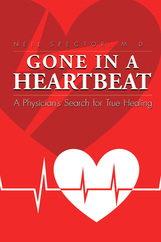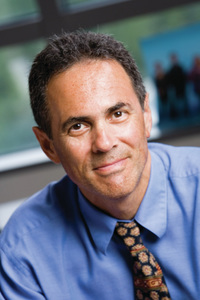
When I finished reading the book I was left speechless, but I also had so many questions. Dr. Spector is incredibly kind and personally answered some questions for me that he is allowing me to share on my blog. If you are interested in the Q & A then read on:

Dr. Spector: No, I'm not concerned about he response to IDSA folks to my story. My story is what it is, an example of what can happen when doctors rely on tests rather than clinical judgement and don't listen to their patients including, yes, even a physician-scientist. I am only pointing out the limitations of the current way we diagnose and care for people with Lyme and other tick-borne diseases.
2. How do those colleagues who just downplayed your symptoms feel after they realized the severity of your illness? Has your story changed their perspective on Lyme disease?
Dr. Spector: My story is less about chronic Lyme after treatment since my cardiac issues resulted from untreated Lyme although the treatment did not reverse the heart damage, which IDSA may find difficult to believe.
3. After the book came out did you experience backlash from medical establishments or colleagues since you are disproving those who claim that chronic Lyme disease does not exist? On the flip side, did you receive any surprise encouragement from either?
Dr. Spector: My primary doctor was a friend and felt bad once the diagnosis was made. We moved shortly thereafter, so I'm not sure he heard about the damage that was done by the misdiagnosis eg the transplant.
4. You are a doctor, and your inner voice was silenced by colleagues. So what can those patients who do not have this background do, so their voice is heard and they get help?
Dr. Spector: Yes, if this can happen to me God help other patients. They need to be informed, use crediblesources, and not stop seeking answers.
5. We're the suicidal thoughts after the diagnosis or while searching for the answer?
Dr. Spector: The one time (only a fleeting but very real thought) was days before I had the transplant in the midst of florid congestive heart failure and my body literally shutting down.
6. Who was your support system? Do you feel there should be more resources for those who support (are caregivers) to a Lyme Patient, so they can effectively do so?
Dr. Spector: My support system was essentially my wife who was amazing throughout my 4 years to find a diagnosis and then 12 years living with the AICD and 10% heart function and eventually transplant. I now attend an amazing Lyme disease support group in Raleigh, NC that meets monthly and provides incredible support and information. Yes, knowledgable support is important regardless of the problem.
xoxo,
Christina


 RSS Feed
RSS Feed